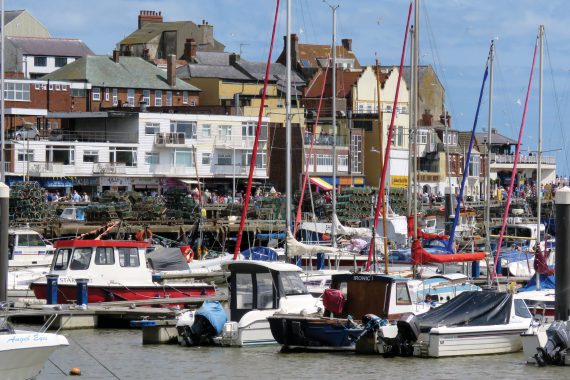Plans to develop a single building to house five GP practices in the crisis town of Bridlington in Yorkshire have been scrapped after NHS England pulled the plug on promised funding – a move that throws the long-term viability of general practice in the town into question, GP leaders have warned.
The ‘health and wellbeing centre’ was first promised to the Bridlington area through NHS England’s Estates and Technology Transformation Fund (ETTF) in 2016, when £10.8m was approved for the project.
However, the cost of the project increased to £18m by January 2018, with the CCG saying in a statement that the ‘funding requirements to deliver this project became ever more challenging and it has been concluded that time and effort is better spent on improving service delivery’.
It is the latest area to be denied ETTF funding, after Pulse revealed that only 5% of the £1bn fund had been spent on its stated aim of improving GP premises.
The centre was supposed to bring general practice in the town back from the brink of collapse after all six practices closed their lists to patients wanting to move surgery, with one practice forced to offer a salary of £130,000, a QOF bonus and paid indemnity for a nine-session salaried GP, as it is currently being run with locums only.
When the centre was first announced, Dr Mike Hardman, a Bridlington GP, told Pulse at the time that the centre was part of a ‘rebirth’ in the town’s healthcare system ‘to provide Bridlington with a world leading facility’.
Dr Alan Francis, a GP partner at Manor House Surgery in Bridlington, told Pulse that the main concern aside from the increased cost however was ‘the degree to which the costs were going to be fully funded’, as the ‘premises cost directions’ – which determines rules around funding GP premises – caps the proportion of funding NHS can contribute for new projects.
He said: ‘When the ETTF was first announced the assumption was that it would be 100% grants but the premises cost directions never changed so actually it was going to end up not being a fully funded scheme but a contribution to the total funding.’
He said the premises cost directions allowed for 40% to be funded by NHS England, leaving 60% to be funded by local organisations, which Dr Francis said was not feasible for Bridlington.
Pulse has previously reported that the £1bn premises fund might not cover all of the projects approved by NHS England because the premises cost directions have not been updated.
The health and wellbeing centre had planned to house several of the town practices, and give space for out-patient clinics.
The project was initially approved following a potential ‘domino effect’ of closures with every practice in the town forced to close their lists because of unmanageable workloads.
Local GP leaders told Pulse that without the health and wellbeing centre, the ‘long-term viability’ of the town’s entire healthcare system is thrown into question.
Dr Zoe Norris, the BMA GP Committee’s lead on salaried and sessional GP issues, who works as a locum in Yorkshire, said: ‘Bridlington is one of the areas that is typical of places that are struggling at the moment.
‘It has had problems with recruitment, there’s a lot of pathology there and GPs have worked really hard to try and keep it going but are just struggling and I don’t know what the long-term viability of it will be without some help, and that’s the practices and the local hospital, both need adequate help and support to get it sorted out.’
Dr Francis told Pulse that ‘there is concern’ from GPs about whether the not having the new building will worsen the situation for practices in the town, but he added that GPs are ‘already struggling an awful lot’.
He added that the practice lists are still closed despite ‘significant pressure’ from NHS England on the grounds of patient choice.
NHS East Riding of Yorkshire CCG said in a statement that the decision to halt the health and wellbeing centre ‘will liberate GP capacity to focus on developing more integrated ways of working across health providers and social care but without the benefit of a centralised centre to facilitate it’.
This comes as Humber NHS Foundation Trust announced this week that it won a contract to continue running Field House Practice for the next five-years, after the practice had been on the brink of closure when One Medical Group handed back its contract at the end of 2016.
Jane Hawkard, chief officer of NHS East Riding CCG said the CCG would ‘continue to seek out future development opportunities’ for primary care.
A spokesperson for NHS England North said that from the beginning NHS England had been committed to a business case, which would explore all the funding options available, but unfortunately the project was unable to progress.
What is the £1bn transformation fund?
The £250m-a-year fund was a 2014 commitment made by then chancellor George Osborne, which would address immediate capacity and access issues, and lay the foundations for delivering care in the community.
Speaking in 2015, when GP practices were first invited to bid for funding, NHS England chief executive Simon Stevens said ‘kick-starting an upgrade in primary care infrastructure is mission critical’.
But the scheme was taken back to square one in its first year with practices needing to align their plans with local estates strategies.
And Pulse has since shown that just a fraction – £48m of the £500million that was meant to be committed at this stage – has reached practices.
The need for practice premises to be fit for the 21st century was strengthened even more last year when Jeremy Hunt said he wanted general practice to become a ‘one-stop shop’ taking on outpatient care for chronic conditions.
Pulse October survey
Take our July 2025 survey to potentially win £1.000 worth of tokens














